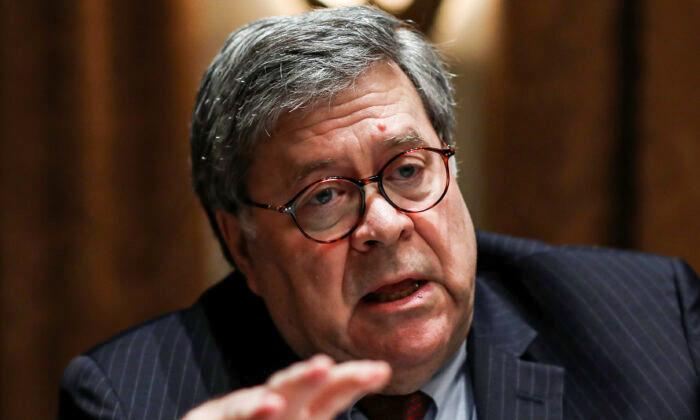A federal appeals court on Friday ordered the Department of Justice (DOJ) to release a 2019 internal memo that then-Attorney General Bill Barr had reviewed before deciding whether to prosecute then-President Donald Trump for obstruction of justice in relation to the Mueller special counsel investigation.
A panel of three judges on the U.S. Court of Appeals for the D.C. Circuit, led by Chief Judge Sri Srinivasan, came to the unanimous decision (pdf) in a case brought by the nonprofit organization Citizens for Responsibility and Ethics in Washington (CREW), a government transparency group.




